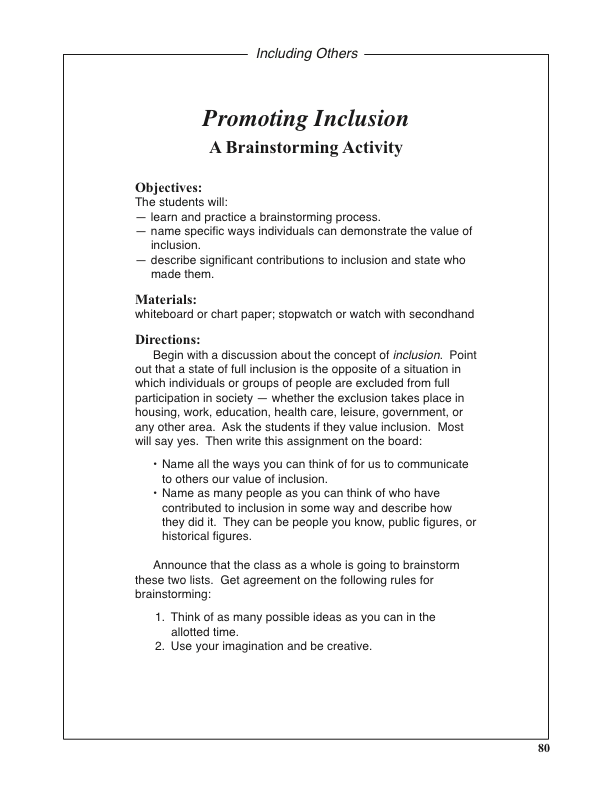
What does it take for people to get along? What is required for individuals and groups from diverse backgrounds to willingly seek common ground while respecting and proudly maintaining the sundry paths that brought them to the places they share?
The Reality
Our multicultural society is made up almost exclusively of immigrants and the descendents of immigrants, many of whom arrived on these shores seeking religious tolerance and freedom from oppression. What ethics must we nourish in our children, what skills do our youth need to learn in order to appreciate the brilliant kaleidoscope of colors and cultures they have inherited? How can we get them to honor, enjoy, and protect what increasing numbers would shatter and separate into little piles of hues and textures with jagged, hostile edges?
A Place to Begin
We can start by recognizing that a school is a community and the classroom a smaller community, and that whatever happens here not only goes home, but to the theater, the mall, the library, the park, the athletic event, and the religious service. Children must grasp that in order for any of us to truly enjoy and benefit from the amenities and opportunities that are available in the community, in order for any of us to feel entirely safe and secure, in order for any of us to expect optimal conditions for learning and growth, we must ensure that those same benefits, securities, and conditions are available to all of us. In short, we must learn to get along. We don’t always have to agree. We can expect to have different ideas, different values, and different goals, but we must learn to respect one another’s rights, to work and play cooperatively, to resolve conflicts, and to take responsibility for our own behaviors and the effects those have on others and on the community as a whole.
What It Really Takes
Merely admonishing students to be “good citizens” is not enough. Most are very familiar with the label and can readily parrot all the implied expectations. For students to get along in the deeper sense characterized by true interdependence, they have to develop self-awareness; undertake responsibility for their actions; accept and appreciate differences in others; listen with empathy and understanding; communicate their thoughts and feelings accurately and assertively; include others in their activities; be open to divergent styles and points of view; work together to solve problems and complete projects; and peacefully resolve any conflicts they experience along the way. What’s more, they have to be conscious that they are doing these things, and be able to verbalize the reasons and benefits. To develop competency in these areas involves the acquisition of specific skills, along with growing awareness and open discussion concerning the process. This in turn requires not just explanation, but modeling, plenty of practice or behavioral rehearsal, and ongoing dialogue.
A Complimentary Activity
The activities in GETTING ALONG – Social Skills Activities for Middle and High School Students are designed to introduce students to these skills in a deliberate, enjoyable fashion and, in the process, elevate their awareness of the responsibility that each has to make the classroom and/or school a cooperative environment where everyone is included, where people experience true interdependence, and where dissent and conflict are never fearsome or ugly but, rather, natural and productive.
Today’s selected activity, Promoting Inclusion, comes from the unit “INCLUDING OTHERS”.

 Use this activity now, and purchase the book to have a whole library of instantly usable social skills skills activities with which to engage your students.
Use this activity now, and purchase the book to have a whole library of instantly usable social skills skills activities with which to engage your students.
You can check the book out HERE, and you can open a reproducible PDF of your student activity HERE.
If you like our blog resources and would like to receive them regularly, please subscribe here or on our website at www.InnerchoicePublishing.com
Thanks so much for reading!
Dianne Schilling (Author)
